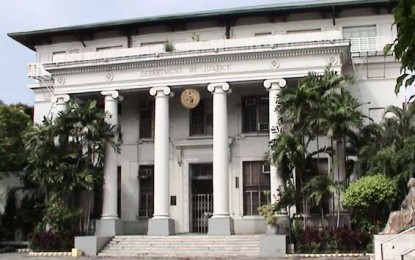
(File photo)
MANILA – Reforms undertaken by the Department of Justice (DOJ) in the preliminary investigation process will protect the innocent from unwarranted charges and ensure that the guilty will be made to answer for their crimes, a senior DOJ official said Wednesday.
“The newly-signed Department of Justice – National Prosecution Service (DOJ-NPS) Rules on Criminal Investigation virtually changed the landscape in criminal investigation and prosecution by ensuring there is a higher degree of proof, there is a quantum of proof or evidence needed for the filing of cases," Justice Undersecretary Raul Vasquez said during the 2024 Post State of the Nation Address (SONA) discussions.
The DOJ-NPS 2024 was signed by Justice Secretary Jesus Crispin Remulla at the Kalayaan Hall in Macalañang on July 10, with President Ferdinand R. Marcos Jr. as witness.
Under the new rules, the standard of proof was raised from probable cause to prima facie evidence with reasonable certainty of conviction.
Vasquez said the new rules also call for more immersive participation by prosecutors in the investigation phase to ensure quality indictments and help weed out harassment suits.
"This is to ensure that only quality cases are filed, one that is supported by evidence, real, testimonial, and other corroborative witnesses, in order that the wrongdoers or criminals would really be brought to bear before the bar of justice, but at the same time, and more importantly, it is also assures that the innocents need not needlessly be charged in court nor incarcerated," he said.
"We will also try to formalize the close coordination between law enforcement and the prosecution in order that only trial-ready and evidence-supported cases will be filed."
Vasquez also pointed out that efforts have been initiated for the establishment of a Forensic Institute, which would make investigations science-based, in terms of criminal investigations and prosecutions.
"This is also useful in terms of calamity and disaster control because, with the higher capacity of our doctors and medical practitioners in terms of forensic science, we would be able to determine the real causes of death," he said. (PNA)
